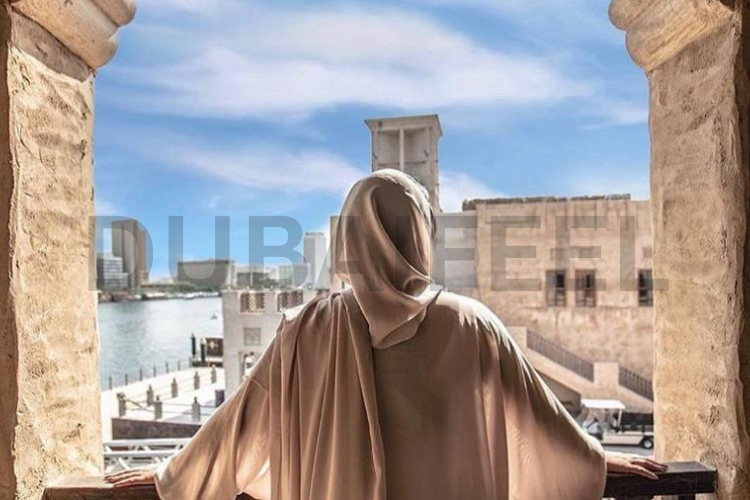Dubai, often synonymous with futuristic skyscrapers and luxury shopping, is now gaining recognition for its rich cultural heritage. As the city continues to evolve into a global metropolis, its traditional roots show a growing interest, which offers a fascinating contrast to its modern skyline. But what drives this newfound appreciation for Dubai’s culture among tourists? Let’s explore the key factors turning Dubai’s cultural legacy into a significant attraction.
1: The Heritage Blend of Old and New: A Unique Attraction in Dubai
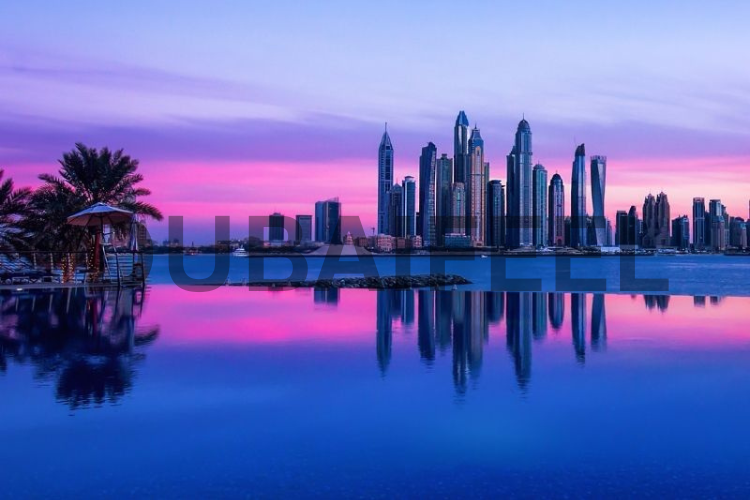
Dubai’s transformation into a global metropolis is nothing short of extraordinary. The city has rapidly evolved into a symbol of modernity. Yet, amid its futuristic developments, Dubai remains deeply connected to its roots, preserving its rich cultural heritage. This unique blend of old and new has become a significant draw for tourists, offering them a multifaceted and enriching experience. The seamless integration of cutting-edge architecture with historical sites and traditional practices makes Dubai a compelling attraction.
Also read : 8 Hidden Gems in Dubai Recommended by Locals (And a Few to Consider Skipping)
- A Journey Through Time
Dubai is evident in the way it balances modernity with tradition. While visitors are awed by the grandeur of structures like the Burj Khalifa, the world’s tallest building, they can also explore the city’s rich past in places like the Al Fahidi Historic Neighborhood. This area, also known as Al Bastakiya, is one of the oldest parts of Dubai, and it provides a stark contrast to the city’s towering skyscrapers. The narrow, winding lanes of Al Fahidi have traditional wind-tower houses, museums, and art galleries that offer a glimpse into Dubai’s past.
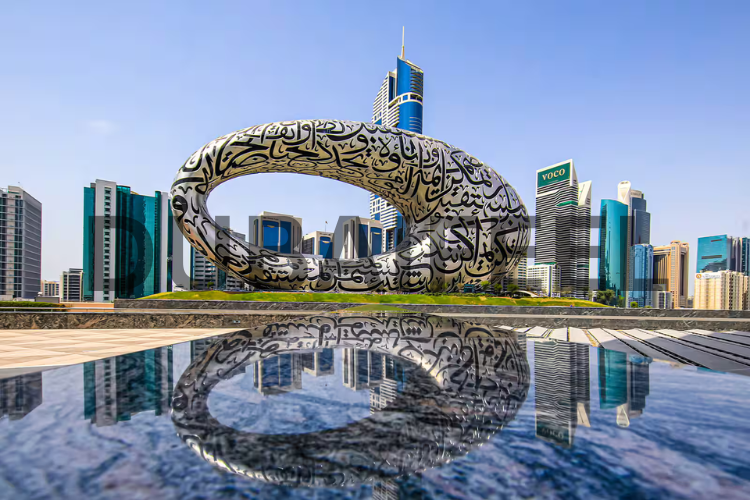
Wandering through Al Fahidi, tourists can tangibly experience the city’s heritage. The neighborhood’s architecture reflects the traditional designs that once dominated the region, with wind towers used to cool homes before air conditioning. This preservation of historical architecture is a testament to Dubai’s commitment to maintaining it, even as it pushes the boundaries of modernity.
Dubai’s modern developments are not just about towering skyscrapers and luxury malls; they are also deeply connected to the city’s heritage. For instance, the design of the Burj Khalifa, while a marvel of modern engineering, is inspired by the Hymenocallis flower, a plant native to the region. This connection to the local environment and cultural elements is a recurring theme in Dubai’s architecture, where modern structures often pay homage to the city’s past.
Another example is the Burj Al Arab, one of the world’s most luxurious hotels, whose sail-shaped silhouette nods to Dubai’s maritime heritage. This blending of old and new enhances the city’s aesthetic appeal and reinforces the importance of culture in Dubai’s identity. It creates a forward-looking narrative deeply rooted in tradition, offering visitors a unique perspective on the city’s evolution.
The appeal of Dubai lies in its ability to provide diverse experiences that cater to different types of travelers. For those interested in history and culture, the city’s museums and historic districts provide a rich source of knowledge about Dubai’s past. The Dubai Museum in the Al Fahidi Fort takes visitors on a voyage through time. However, even these modern attractions have elements of city heritage. For example, the Souk Madinat Jumeirah, a modern shopping destination, is designed to resemble a traditional Arabian market, complete with winding alleys, waterways, and wind towers.
Dubai’s ability to merge the old with the new is a significant factor in its appeal as a tourist destination. Whether exploring the historic lanes of Al Fahidi or marveling at the modern wonders inspired by traditional designs, visitors have a multifaceted experience that reflects the city’s rich heritage. As Dubai continues to evolve, this blend of old and new will undoubtedly remain a crucial part of its identity, ensuring its culture remains a significant tourist attraction.
2: Immersive Authentic Cultural Experiences: A Gateway to Dubai’s Heritage
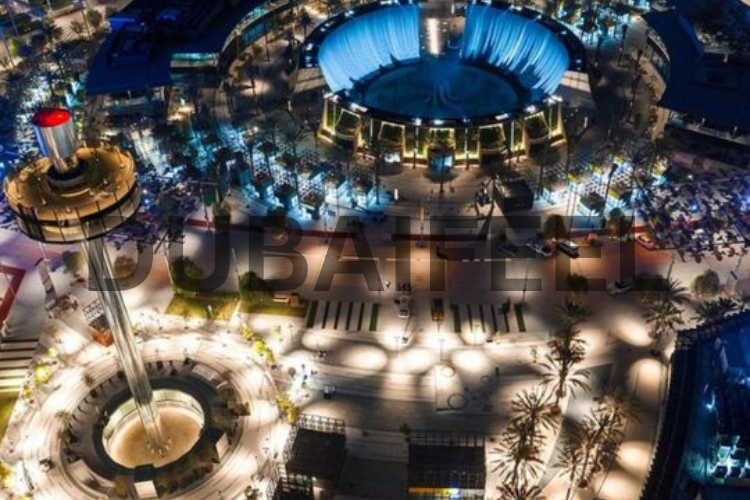
Dubai, a city often associated with luxury and modernity, is also a treasure trove of authentic cultural experiences that offer a window into its rich heritage. As Dubai continues evolving into a global metropolis, a conscious effort is to preserve and promote its cultural identity. In recent years, the city has invested heavily in creating attractions that give visitors a deeper understanding of Emirati history, customs, and traditions.
These initiatives have enhanced Dubai’s appeal as a tourist destination and helped foster a greater appreciation for its heritage. One of the most prominent sites where Dubai comes to life is the Dubai Museum in the 18th-century Al Fahidi Fort. This museum offers a journey through time that immerses visitors in the story of Dubai’s transformation.
The exhibits are carefully curated to present the various aspects of Emirati life, from traditional homes and marketplaces to the importance of the sea in the city’s development. As visitors explore the museum, they are transported back in time, gaining insights into the daily lives of the people who shaped Dubai’s heritage. The museum’s displays vividly depict the city’s past, including life-sized dioramas, artifacts, and multimedia presentations.
Another vital institution that plays a pivotal role in promoting Dubai’s heritage is the Sheikh Mohammed Centre for Cultural Understanding (SMCCU). Established to bridge the gap between cultures, the SMCCU offers visitors a unique opportunity to engage with Emirati customs and traditions in an open and welcoming environment. The center’s motto, “Open Doors. Open Minds,” reflects its commitment to fostering mutual understanding and respect between locals and expatriates.
At the SMCCU, visitors can participate in various cultural experiences that highlight Dubai’s culture. These include traditional Emirati meals, where guests can enjoy authentic cuisine while learning about local customs and etiquette. The center also offers guided tours of the Al Fahidi Historic Neighborhood, providing deeper insights into this historic area’s architectural and cultural significance. Through these interactive experiences, tourists gain a firsthand understanding of the values and traditions that underpin Emirati society.
In addition to permanent attractions, Dubai has various yearly cultural festivals. These events offer tourists the chance to experience the city’s traditions in a vibrant and festive atmosphere. For example, the Dubai Village hosts numerous events that showcase traditional crafts, music, and dance, allowing visitors to witness the city’s living. The Dubai Shopping Festival, while primarily known for its retail offerings, also features cultural performances and exhibitions that highlight the city’s heritage.
During this time, traditional markets (souks) come alive with artisans and performers, offering tourists a glimpse of Dubai’s cultural richness. These festivals attract visitors from around the world. Dubai’s commitment to maintaining and promoting its heritage through authentic cultural experiences has significantly enhanced its appeal as a tourist destination.
Attractions like the Dubai Museum and the Sheikh Mohammed Centre for Cultural Understanding provide visitors with an in-depth look at the city’s history, customs, and traditions, fostering a greater appreciation for its cultural legacy. Additionally, cultural festivals and events offer dynamic ways to engage with Dubai’s heritage, ensuring the city’s traditions thrive in the modern world. For tourists seeking a deeper connection with Dubai, these authentic cultural experiences offer an enriching journey into the heart of the city’s heritage.
Also read:4 Shopping Secrets: How to Score the Best Luxury Deals in Dubai
3: Celebrating Heritage: Cultural Festivals and Events in Dubai
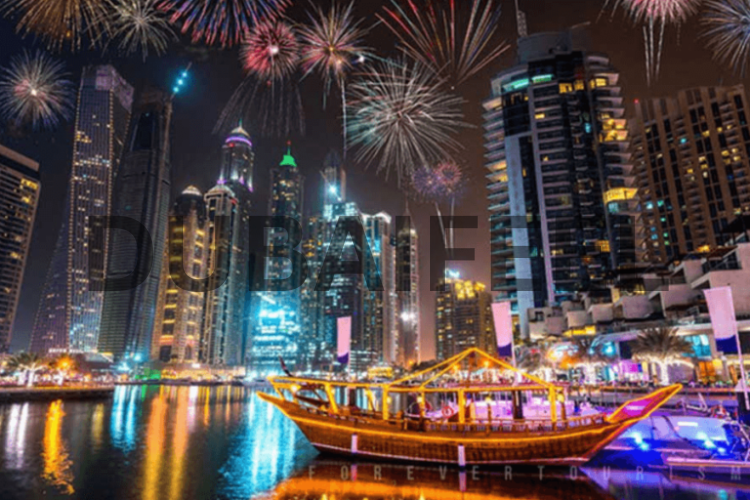
Dubai is a city of skyscrapers and luxury and a vibrant hub of cultural festivals and events celebrating its diverse heritage. Throughout the year, the city’s cultural calendar has a wide array of festivals that attract visitors from around the globe. These events, ranging from grand shopping festivals to intimate food fairs, offer tourists a unique opportunity to experience Dubai’s rich cultural heritage in dynamic and engaging ways.
The blend of traditional and contemporary celebrations provides a fascinating insight into the city’s past, present, and future.
One of the most prominent events on Dubai’s cultural calendar is the Dubai Shopping Festival (DSF). While DSF is widely known for its massive retail discounts and entertainment, it also serves as a platform to showcase the city’s heritage. During the festival, traditional markets, or souks, become lively centers of activity where visitors can explore Emirati crafts, textiles, and jewelry. Artisans demonstrate age-old techniques, giving tourists a firsthand look at the skills passed down through generations.
In addition to shopping, DSF features cultural performances that highlight the city’s diverse heritage. These performances are not just entertainment; they celebrate the city’s rich culture, bringing to life the traditions that have shaped Dubai’s identity over the years. The DIFF is another major event that underscores the city’s commitment to celebrating its heritage while embracing global culture.
DIFF brings together filmmakers, actors, and audiences worldwide to celebrate cinema in all its forms. While the festival showcases international films, it also strongly emphasizes promoting regional cinema, highlighting stories that reflect the heritage of the Arab world. Through DIFF, Dubai positions itself as a cultural bridge between East and West, offering a platform for diverse voices to share their narratives. The festival contributes to the global film industry and promotes an understanding of the region’s cultural heritage.
For visitors, attending DIFF is an opportunity to experience the rich storytelling traditions of the Middle East, further deepening their appreciation of Dubai’s cultural landscape. Dubai’s food festivals are a delicious way for visitors to connect with the city’s heritage. Events like the Dubai Food Festival and Taste of Dubai offer a culinary journey through the flavors of the Emirate. These festivals highlight the diverse culinary traditions that makeup Dubai’s food scene, from traditional Emirati dishes to contemporary fusion cuisine.
At these festivals, tourists can sample a wide range of Emirati foods, such as hares, matchbooks, and maqamat, often prepared by local chefs using traditional methods. The food festivals also feature cooking demonstrations and workshops, where visitors can learn about the ingredients and techniques central to Emirati cuisine.
Through these culinary experiences, tourists gain a deeper understanding of Dubai’s heritage, as food is a vital link to the city’s cultural identity. Beyond these significant festivals, Dubai’s cultural calendar is full of events celebrating its heritage year-round. The Dubai Heritage Village, for example, hosts various events and exhibitions that showcase traditional crafts, music, and dance.
Visitors can also explore replicas of Bedouin tents, coastal villages, and traditional houses, offering a glimpse into the lifestyle of the city’s early inhabitants. Similarly, events like the National Day celebrations and the UAE Flag Day provide a sense of national pride, where Dubai’s heritage is on full display.
These events commemorate the past and foster a connection between the people and the cultural roots that continue to shape Dubai’s present and future.
Dubai’s cultural festivals and events are crucial in celebrating and preserving the city’s diverse heritage. From the bustling Dubai Shopping Festival to the globally recognized Dubai International Film Festival, these events offer tourists a unique opportunity to engage with the city’s rich cultural landscape. The food festivals, in particular, provide a flavorful journey through Emirati heritage, allowing visitors to experience the city’s culinary traditions firsthand. By participating in these festivals, tourists can immerse themselves in the vibrant culture of Dubai, gaining a deeper appreciation for the heritage that defines this dynamic city.
4: Revitalization of Traditional Markets: Preserving Dubai’s Trading Heritage
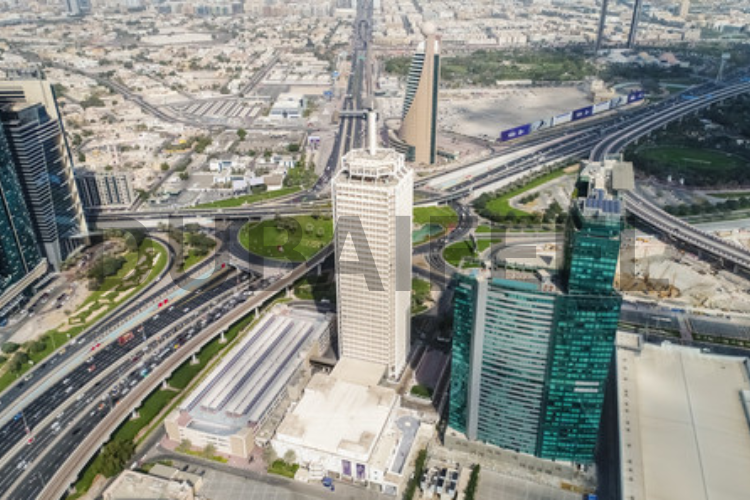
Dubai is a city where the past seamlessly blends with the present, and nowhere is this more evident than in traditional markets or souks. These bustling marketplaces, such as the Gold Souk, Spice Souk, and Textile Souk, are more than just shopping destinations—they embody Dubai’s rich trading heritage.
As the city grows into a global hub of modern commerce, these souks offer a unique glimpse into its historical roots, drawing tourists worldwide. The revitalization of these traditional markets has played a crucial role in preserving Dubai’s cultural heritage, making them a must-visit for anyone looking to experience the city’s authentic charm.
The Gold Souk in Deira is the most famous of Dubai’s traditional markets and is known for its dazzling display of gold jewelry. Dubai has been a central hub for centuries, and the Gold Souk is a testament to this legacy. Visitors to the souk are greeted by row after row of shop windows filled with intricate gold pieces, from simple rings to elaborate necklaces and bracelets.
The souk is a vibrant reflection of Dubai’s trading heritage, where the art of haggling is still very much alive. The revitalization of the Gold Souk has ensured that it remains a key attraction in Dubai’s tourism landscape.
Modern amenities have enhanced the shopping experience, yet the souk retains its traditional character, blending old-world charm and contemporary convenience. For many tourists, a visit to the Gold Souk is not just about purchasing jewelry; it is about engaging with Dubai’s heritage, understanding the city’s role in the global gold trade, and experiencing a market that has been a part of Dubai’s identity for generations.
Just a short walk from the Gold Souk lies the Spice Souk, another market that has significantly preserved Dubai’s trading heritage. The Spice Souk is a sensory experience like no other, where the air is thick with the aroma of exotic spices worldwide. Here, visitors can find everything from saffron and cardamom to frankincense and dried fruits, all displayed in colorful mounds that are as visually striking as they are fragrant.
The Spice Souk offers more than just a shopping experience—it is a journey through the culinary heritage of Dubai. The souk is a modern tourist area that preserves its traditional atmosphere. The narrow alleys, wooden archways, and vibrant displays of spices transport visitors back in time, offering a taste of Dubai’s rich cultural heritage.
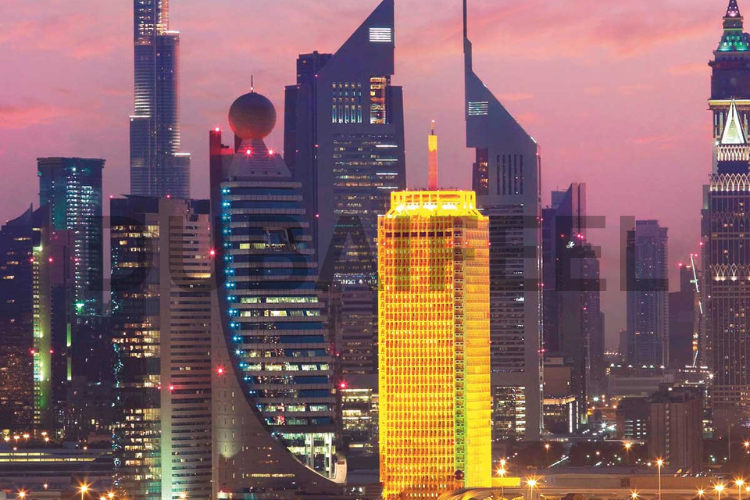
The Textile Souk on the Bur Dubai side of the Creek is another traditional market crucial in preserving Dubai’s heritage. This souk is a paradise for those interested in fabrics and textiles, offering a wide range of materials, from delicate silks to richly embroidered cloths. The souk has long been a center for the textiles trade, reflecting Dubai’s historical connections to the global fabric trade. The revitalization of the Textile Souk has ensured that it continues to be a vibrant part of Dubai’s cultural landscape.
While the souk now includes shops selling modern souvenirs and fashion items, it retains its traditional charm, with vendors offering everything from handwoven pashminas to traditional Arab garments. For tourists, the Textile Souk provides an opportunity to engage with Dubai’s heritage through the tactile experience of exploring its decadent array of fabrics.
The revitalization of Dubai’s traditional markets is not just about preserving their function as shopping destinations but also maintaining their status as cultural landmarks. These souks are living museums of Dubai’s trading heritage, where visitors can experience the city’s history dynamically and interactively.
The markets are a testament to Dubai’s origins as a trading port, and their continued vitality ensures that the city’s heritage remains an integral part of its identity. In a rapidly modernizing city like Dubai, the souks counterbalance the towering skyscrapers and luxury malls, providing a tangible link to the past.
By preserving and revitalizing these markets, Dubai has ensured that its heritage is remembered and actively experienced by locals and tourists alike. Dubai’s traditional souks, such as the Gold Souk, Spice Souk, and Textile Souk, are more than just marketplaces—vibrant embodiments of the city’s trading heritage. Through their revitalization, these souks continue attracting tourists worldwide, offering a unique blend of shopping and cultural exploration. As cultural landmarks, the souks play a crucial role in preserving Dubai’s heritage, allowing visitors to experience the city’s history firsthand.
5: Promotion of Emirati Art and Craftsmanship
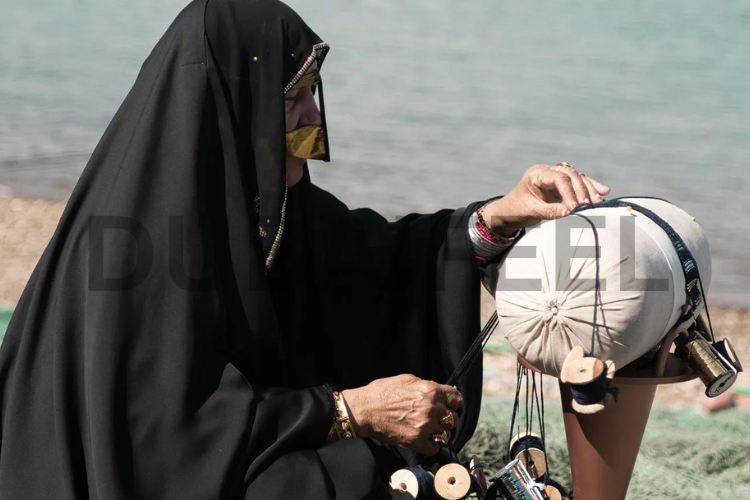
Dubai is a hub for contemporary art and design, but there’s also a growing emphasis on Emirati art and craftsmanship. Galleries and cultural centers across the city showcase traditional arts. For instance, the annual Sikka Art Fair celebrates the work of Emirati artists and artisans, offering tourists a chance to witness the creativity rooted in the region’s heritage.
6: Educational Tourism Initiatives
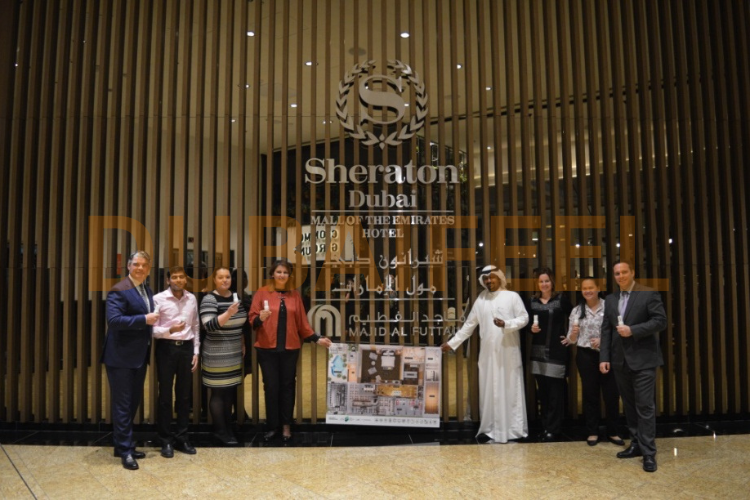
Educational tourism contributes to the rising interest in Dubai’s cultural heritage. Various institutions and tour operators offer programs and guided tours focusing on the city’s history, architecture, and cultural practices. These initiatives cater to tourists who seek not just to visit but to learn about the places they explore, making Dubai an appealing destination for educational travel.
7: Cultural Diplomacy and Global Influence
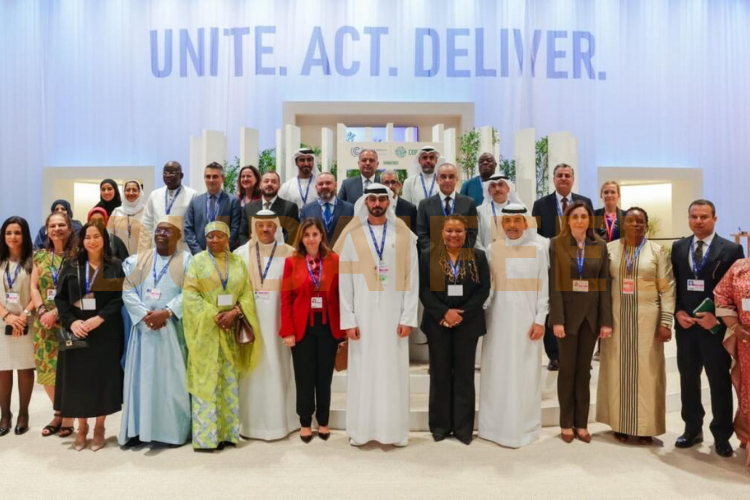
Dubai’s efforts in cultural diplomacy have helped elevate its cultural heritage on the global stage. The city’s participation in international exhibitions, such as the Expo 2020, has highlighted its cultural legacy to a worldwide audience. This exposure has sparked curiosity among international tourists, eager to experience the blend of tradition and innovation that defines Dubai.
Dubai’s cultural heritage is becoming a major tourist attraction due to its seamless integration of the old with the new, the promotion of authentic experiences, and the revitalization of traditional practices. As the city continues to celebrate and preserve its rich history, it offers visitors a unique opportunity to explore a side of Dubai deeply rooted in tradition yet still evolving. For travelers seeking a destination that offers more than just luxury and modernity, Dubai’s cultural heritage provides a compelling reason to visit and discover the city’s rich and diverse past.
